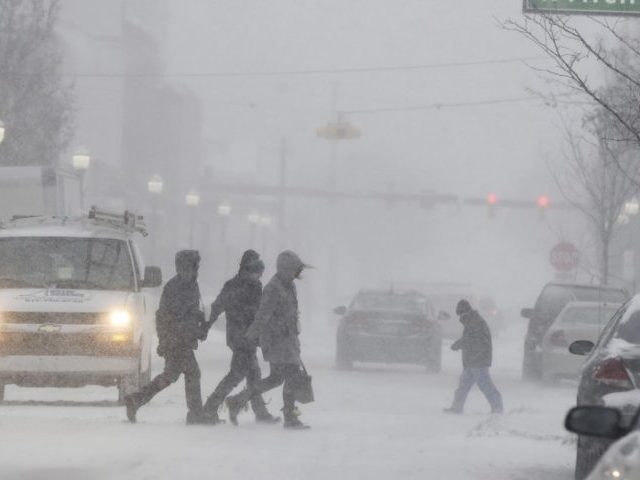LANSING, Mich. (AP) — Michigan residents risk brief interruptions of natural gas service for heat amid bitterly cold weather if they don’t help reduce energy use because of a fire at a utility’s suburban Detroit facility that limited natural gas supplies, officials warned Thursday.
Consumers Energy’s CEO Patti Poppe made an appeal Wednesday night for customers to reduce their natural gas usage. She told The Detroit News early Thursday that “localized planned curtailments” for some homes and business if demand isn’t reduced.
Loud noise and fire reported at Consumers Energy facility in Macomb County. MORE: https://t.co/3iGZTGX7cj pic.twitter.com/dOKlFZC4mZ
— FOX 2 Detroit (@FOX2News) January 30, 2019
An emergency alert was sent late Wednesday to cellphones asking people to lower thermostats to 65 degrees or below through Friday. And Consumers Energy asked its largest business customers, such as automakers, to reduce natural gas usage.
Gov. Gretchen Whitmer also appeared in a video online Wednesday night and said the request to lower thermostats was for those in Michigan’s Lower Peninsula. Temperatures in Michigan were at their lowest levels of the week, with readings around negative 12 degrees in the Detroit area and at bitterly cold levels statewide.
Consumers Energy: Use less gas after fire at station. https://t.co/52fw2ttKvR pic.twitter.com/ubSqvXR6bt
— The Detroit News (@detroitnews) January 30, 2019
“You can play a role in helping people across the state survive these extreme temperatures,” she said. “Please do. We’re calling on every Michigander to do your part and help us weather this storm together.”
Jackson-based Consumers Energy said no one was injured in the fire Wednesday at its Ray Natural Gas Compressor Station in Macomb County. The cause of the fire was under investigation. The company said all gas flow from the station was shut off, and that it activated natural gas peaking storage fields to help meet demand for gas to heat homes and businesses.
The Michigan Public Service Commission said all state-owned facilities in the Lower Peninsula lowered their thermostats to reduce the burden on the natural gas supply.
DTE Energy, meanwhile, also asked Michigan customers to help “safeguard the reliability of the regional energy grid” amid the cold by voluntarily reducing electricity use. Suggested steps include lowering the thermostat by several degrees and minimizing the use of appliances such as washers, dryers and ovens.
“While DTE’s plants are running well, our system is connected to energy grids in other states and Canada that are experiencing issues due to the extreme weather,” Christy Wicke, executive director, Generation Optimization, said in a statement.

COMMENTS
Please let us know if you're having issues with commenting.